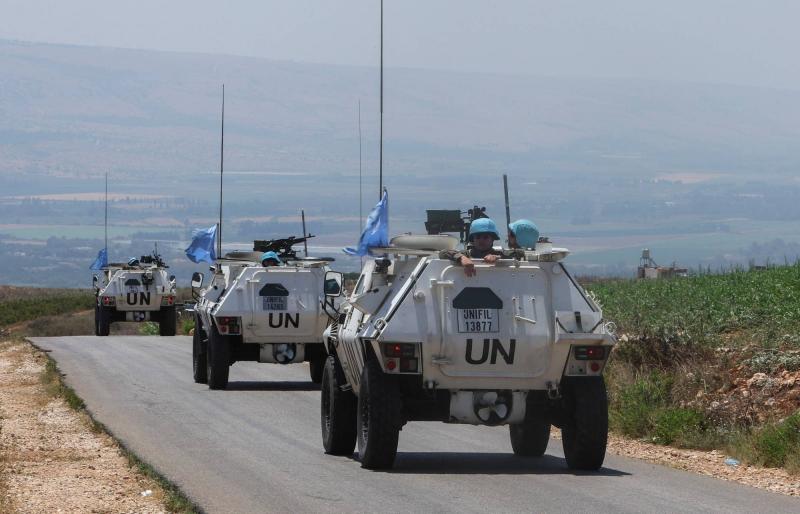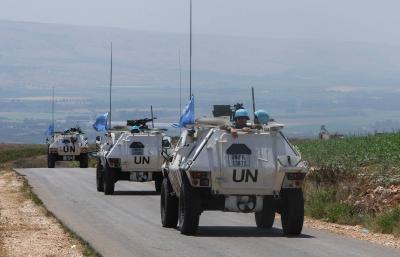Lebanon is awaiting the draft resolution for the extension of the United Nations Interim Force in Lebanon (UNIFIL), being prepared by France, amid discussions with influential international powers to promote Lebanon's demand for an extension of its mandate next August without changes. The UN Security Council is expected to extend the UNIFIL mandate in late August, continuing annual amendments that have occurred during this period since the issuance of resolution 1701 in 2006, following a 33-day war. The Lebanese position insists on an extension without modifications, contrary to Israeli desires which call for granting the international forces additional powers, including visiting areas that they currently cannot access in southern Lebanon.
According to Lebanese diplomatic sources, Minister Abdullah Bou Habib, who is visiting New York at this time, has held numerous meetings with relevant parties regarding Lebanese affairs, indicating that Lebanon is awaiting the draft resolution being prepared by France as the penholder, which the ministry is expected to receive in early August.
France typically prepares the draft and submits it to the Security Council, which sometimes makes amendments, as happened in 2022 when it approved a change regarding the mobility of UNIFIL forces, granting them the freedom of movement without coordination with the Lebanese army, which sparked criticism. The Lebanese government moved in 2023 to cancel the previous amendment, rejecting the circulating draft as it "does not indicate the necessity and importance of UNIFIL coordinating its operations with the Lebanese government represented by the Lebanese army, as stipulated in the UNIFIL operational agreement known as the SOFA."
Lebanon is leveraging diplomatic communications to extend the UNIFIL mandate without changes, highlighted by two meetings held by Parliament Speaker Nabih Berri with the Russian special envoy for Middle East affairs, Vladimir Safronkov, last Friday, where they discussed developments in Lebanon and the region "in light of Israel's continued aggression against Lebanon and Gaza," as stated in a statement from his office. Russia currently holds the rotating presidency of the Security Council, following a meeting on Thursday with the UN Secretary-General's special representative in Lebanon, Jeni Plasschaert.
In the midst of Lebanese discussions with international parties ahead of extending UNIFIL's mandate, Lebanon has not yet received any international communications regarding potential changes to its mandate, as stated by relevant ministerial sources, despite reports of changes being requested by Israel, which Lebanon rejects. This year's extension of UNIFIL's mandate comes amid an ongoing war that began on October 8, when Hezbollah became engaged in "supporting and aiding" Gaza from southern Lebanon.
Retired Lebanese Army General Abdurrahman Shhaytli, former head of Lebanon's permanent delegation to the tripartite committee (Lebanon, Israel, and UNIFIL), views international acceptance of extending UNIFIL's mandate as a "very positive development amid the ongoing war," explaining that it "indicates that no war will escalate, and stability in the south remains a priority for the countries involved in the UNIFIL mission." He added that the mere presence of these forces and their non-withdrawal "guarantees that no war will widen."
Shhaytli dismisses any acceptance of Israel’s demands to grant UNIFIL the power to move and conduct searches in public and private properties and homes without the accompaniment of the Lebanese army. He stated: "This is impossible, as it contradicts Lebanese law, which does not grant even the army the authority to raid and search private properties unless caught in the act or by a judicial order," noting that the Lebanese state sees expanding UNIFIL’s authority to carry out such tasks as "a violation of Lebanese sovereignty and law." He reminds that UNIFIL's mandate is to "assist the Lebanese state in deployment and regaining sovereignty, meaning the state requests while UNIFIL does not take the initiative on its own; they are forces supporting the army and the official law enforcement authorities under a cooperation protocol signed between the two parties in 1978 and under a protocol between the army command and UNIFIL after the 2006 war regarding how to coordinate, rules of movement, and communication."
Shhaytli does not deny the concerns accompanying the discussions for extending the international mission’s mandate, urging the Lebanese government to demand "that the 13 disputed land border points be placed under the control of the international ceasefire monitoring forces that have been in the south since 1949," forces operationally deployed under UNIFIL command since 2007.
He explains: "The 1949 ceasefire line is the responsibility of those forces, while UNIFIL's mission is to assist the Lebanese army's deployment up to the border." He urges the Lebanese government to "insist that the disputed points be the responsibility of the ceasefire monitoring forces, as the ceasefire line corresponds to the international borders we demand," adding that this "would be a significant key to resolving the border crisis."
There are still 13 unresolved border points between Lebanon and Israel, led by point B1, which Lebanon asserts is its right and will not relinquish. The 13 disputed points have been presented multiple times in meetings of the tripartite committee at the UN headquarters in Naqoura.
UNIFIL organizes about 450 patrols daily in its operational areas, but the army cannot fully accompany them, as its number in the region does not allow for full accompaniment on all patrols, and accompaniment is chosen in areas likely to experience tensions with residents or local forces, based on priorities that align with the ability to deploy.




